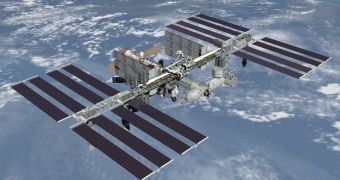According to an announcement made by Secretary of State Hillary Clinton on January 17, the United States is willing to cooperate with other nations for developing an international code that regulates how nations explore and behave in space, as long as the agreement does not interfere with national security.
The White House official said that certain efforts are underway in the US in this direction, and added that the country will only join international agreements on space exploration if said agreements do not interfere with its ability to pursue its national security objectives.
In the statement she released yesterday, Clinton emphasized that the space environment was very delicate, citing the examples of orbital debris and what she termed “irresponsible actors” in making Earth's orbit a less safer place for exploration and study.
These issues are the main motivations between the proposed international agreements. If all nations involved in space exploration follow these rules, then it may become possible to explore space and Earth's near environment in a sustainable, safer manner.
“A code of conduct will help maintain the long-term sustainability, safety, stability and security of space by establishing guidelines for the responsible use of space,” Clinton explained in the document.
She was also clear in announcing that the United States would not be signing a draft code that the European Union had been working on for quite some time. Washington feels that the agreement proposal is too restrictive, and has made its point clear to European counterparts.
“As we begin this work, the United States has made clear to our partners that we will not enter into a code of conduct that in any way constrains our national security-related activities in space or our ability to protect the United States and our allies,” Clinton explained.
In other words, the country will not bind itself to an agreement that limits its military activities in space. This is a bit hypocritical, since American officials have been blasting China on its plans to militarize space for several years.
Still, Clinton reiterated that the US is willing to work with the EU for developing another draft agreement, one that would better represent its interests in space. This willingness comes from US President Barack Obama's 2010 National Space Policy, which promotes international cooperation.
What is clear even to the US is that the “threats to the space environment will increase as more nations and non-state actors develop and deploy counter-space systems,” Clinton wrote. Over the next few years, more and more private companies are expected to increase their presence in space.
“Today space systems and their supporting infrastructure face a range of man-made threats that may deny, degrade, deceive, disrupt or destroy assets,” Clinton concluded, as quoted by Space.

 14 DAY TRIAL //
14 DAY TRIAL //